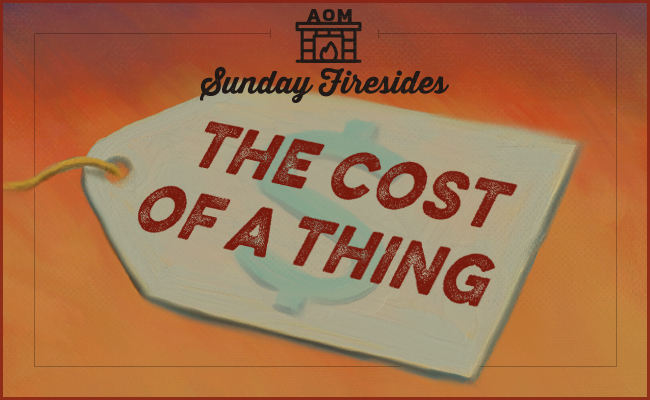
To figure out the cost of something, we typically look to its price tag. But this number represents but a small slice of the expenditure the purchase will require.
Besides the upfront cost, one must also factor in the cost of future maintenance, repair, and upkeep.
A car necessitates fuel, oil changes, insurance. A house will need to be filled with furniture, and nice furniture, to, you know, match the niceness of the home. The bigger the house, the more of your time you’ll have to dedicate to cleaning it, or, the more of your money you’ll have to pay for someone else to clean it.
To get the money you’ll trade for both upfront and maintenance costs, you (or your spouse) will have to trade your labor. And you’ll have to trade your labor for time. And in trading time you could have chosen to spend on leisure, family, or personal passions, for time you’re obligated to spend working, you’ll have to trade some of your autonomy.
The purchase will not only exact measurable payments in money and time, but also invoice your more intangible assets. To the degree an item adds to your clutter, it will put a lien on your mental bandwidth. To the degree it adds to your debt, it will forge another link in that freedom-stealing, peace-of-mind-robbing ball and chain.
All such considerations must be factored into the ultimate price to be paid. As Thoreau observed, “the cost of a thing is the amount of what I will call life which is required to be exchanged for it, immediately or in the long run.â€
Thus, when weighing whether a purchase is worth it, whether you’re getting a “good deal†on something, the question to ask is this:
Will buying this thing offer more life than it demands in return?


